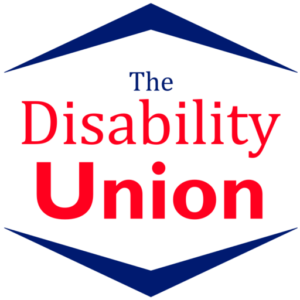
Language is ever evolving, ever changing, and fluid. The words we use have weight and can change the entire meaning of what we are trying to convey. For example, I could describe the animal laying next to me right now and say he has four legs, a tail, and black fur. However, some people might think of a cat when in fact I’m describing my service dog, Yogi. Now, it would have been much simpler to just say “my dog” or “my service dog”. This example shows how words can skew your perception of something or someone. For me, this comes up all the time when discussing labels of disability. Do you use “disabled person” or “person with a disability”? Is there a right or a wrong one to use? How does one know? This article will discuss person-first and identity-first language, and the difference between each one.
What is Person-First Language?
Person-first language has been the most widely acceptable way to address someone, though this has been changing as of late. Person-first language means “person with a disability”. This implies that they are a person first and just happen to be disabled. It puts emphasis on the person, and implies that their disability is only one part of who they are and should not be the focus. They are capable of doing anything a person without a disability can, even with having a disability. This is the most common and widely accepted way of thinking, and the one I was always taught throughout school. It’s what you’ll most likely find when you read anything written about people with disabilities. However, in recent years the thoughts on person-first language, especially among those who are disabled, have begun to swing away from person-first language.
What is Identity-First Language?
Identity-first, however, is the complete opposite. This is less-widely acceptable, especially in medical communities. Nonetheless, it has been gaining momentum over the last several years. Identity-first language is the equivalent of saying “disabled person”, which means you identify their disability first. Some feel that having the disability front and center destigmatizes the disability as a bad thing. A disability is by no means the only important aspect of someone, but it’s thought to be no less important than someone’s gender identity, race, religion, or other form of identity. Identity-first language is rarely used outside of the disabled community. And even then, the thoughts are mixed as to if this is the correct way of speaking.
Which is Right?
As a disabled person, I have seen the debate of person-first vs identity-first language come up almost every time I meet someone new. And almost always, if the person in question is not disabled, they use identity-first language when talking to me. I’ve never thought to outright ask why this is, not that they would know more than likely. But it seems that this is thought to be best because they want to “see the person not the disability”. And that’s awesome, as I’ve been called “wheelchair” before and dang that hurts. But assuming you aren’t doing that and instead you are ignoring me as a person completely, I am who I am because of my disability. You can’t separate the disability from me. Sure, that’s not all I am, but it affects everything I do, say, think, and feel. I’m in my wheelchair all day. I have a service dog. But I’m also an artist, a writer, a friend, and a caring person. I personally don’t care if someone uses person-first or identity-first language when referring to me, as long as the person in question is respectful. I use both, and change to whatever sounds right within the context at the time.
On the flip side, there are people who do care immensely. There are people who have fought to have the right language used when they are referred to or talked with. A lot of Autistic people, for example, prefer identity-first language. They are fighting for the wide-spread use of identity-first language, as people doing Autism research tend to use person-first language. You can read more about using identity-first language and Autism here.
The prefered usage can vary from disability to disability, or even person to person. People who become disabled later in life, from my experience, tend to favor person-first because they want to still be seen as who they were before they were disabled. People who have been disabled their entire life might have a preference, and that preference can change.
Person-first language vs. identity-first language comes down to preference. Some people prefer to use person-first, because they feel that their disability is only part of who they are and should not get in the way of being seen as a person. Still, others prefer identity-first, usually because they feel their disability can not (or should not) be separated from who they are. Not everyone with a certain disability has the same preference, though there can be a general consensus. For example, Autistic people tend to prefer and fight for identity-first language. When you’re speaking to someone and you aren’t sure which they prefer, it’s polite to ask! They’ll probably be grateful you care enough to put in the effort.


